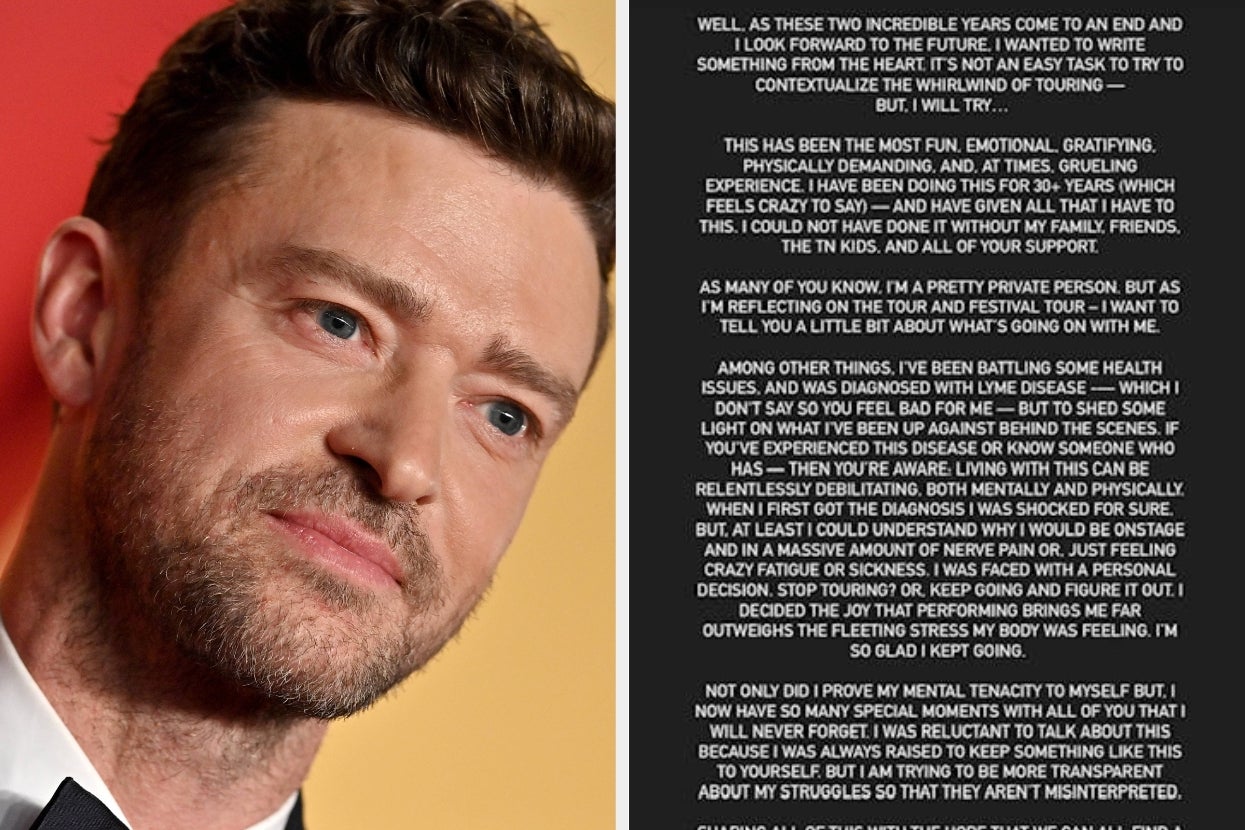Pop icon Justin Timberlake has recently disclosed a private health struggle, revealing his diagnosis with Lyme disease. The acclaimed pop star shared his challenging experience, shedding light on the “debilitating” chronic illness that impacted his recent performances and tour commitments.
The unexpected diagnosis reportedly left Timberlake “shocked,” leading him to consider canceling his highly anticipated tour due to the severe symptoms he was experiencing. These included “massive amount of nerve pain” and “crazy fatigue,” providing crucial context for periods of perceived low energy on stage, a point of recent public discussion.
Despite the immense physical strain, the Grammy-winning singer ultimately decided to continue his tour, prioritizing the profound joy of performing for his dedicated fan base over his personal discomfort. This unwavering commitment highlights his remarkable mental tenacity in the face of a significant health challenge.
Timberlake expressed profound gratitude for the overwhelming support received throughout his “Forget Tomorrow Tour” and “Live ’25” concerts. He emphasized the indelible, special moments created with his audience, citing these interactions as a powerful motivation to push through his personal health battles.
He also extended heartfelt appreciation to his “beautiful” crew, acknowledging their invaluable contribution and collaborative efforts. Timberlake articulated the unparalleled and “sacred” feeling of connecting with fans through the experience of live music, describing it as an “unmatched vibration of frequency.”
This public announcement follows a period of intense scrutiny regarding Justin Timberlake’s stage presence, with some critics noting what they perceived as low-energy performances. His earlier cancellations of several concerts, citing health reasons, now align with his recent revelation about battling Lyme disease, offering a fuller picture.
Beyond Timberlake’s personal experience, Lyme disease is a condition with a significant global footprint, affecting hundreds of thousands annually. Often dubbed a “silent pandemic,” its widespread prevalence and the complexities of its treatment, which frequently extend beyond simple antibiotic courses, are increasingly gaining recognition in public health discussions as a serious chronic illness.
The disclosure, however, has also sparked a nuanced conversation among fans, balancing empathy for the celebrity health struggle with the expectations of concertgoers. Some have voiced concerns about feeling shortchanged on performance quality, prompting a broader debate on accountability and transparency within the entertainment industry.






Leave a Reply